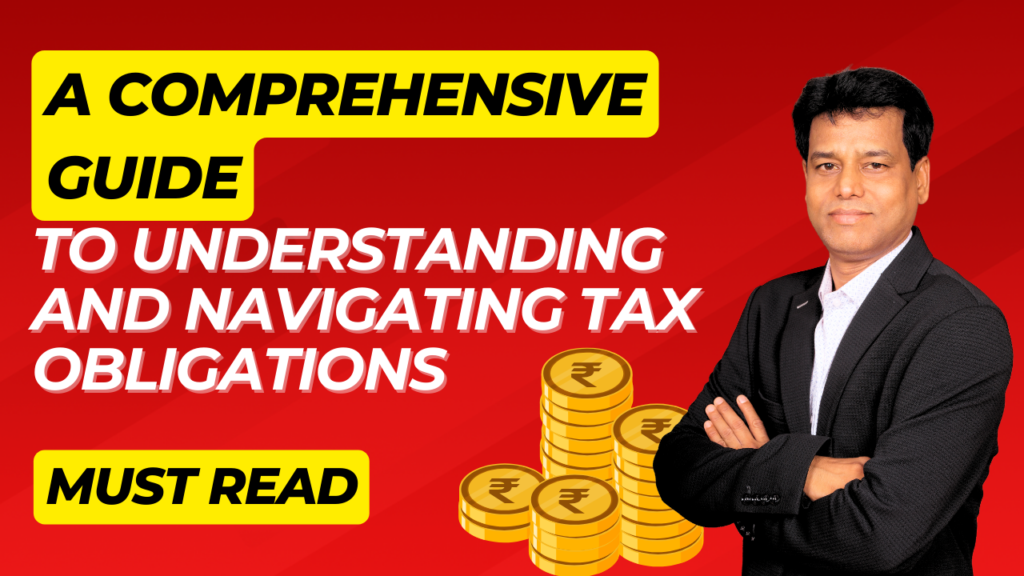Gain an unmistakable comprehension of duties with this far reaching guide. Find out about various kinds of charges, documenting necessities, allowances, and credits to upgrade your monetary commitments and limit charge liabilities.
Charges assume an imperative part in our lives, financing public administrations and framework that benefit society in general. Nonetheless, the intricacies of the expense framework can frequently leave people feeling overpowered and unsure. In this extensive aide, we’ll break down the essentials of expenses, engaging you with the information expected to certainly explore the universe of tax assessment. From understanding different assessment types to amplifying allowances, this article will give important experiences to assist you with settling on informed monetary choices.
1. Understanding Taxes and Their Purpose:
Charges are obligatory monetary commitments forced by state run administrations to create income for public uses. These assets support fundamental administrations like instruction, medical services, and safeguard, guaranteeing the prosperity and progress of society.
2. Exploring Various Types of Taxes:
a. Personal Duty: Disentangling the intricacies of annual assessment, which is collected on people and organisations in view of their profit or benefits.
b. Deals Expense: Understanding the systems of deals charge, otherwise called Tank or GST, and its effect on labour and products buys.
c. Local charge: A more critical gander at local charge, its estimation strategies, and its job in financing nearby taxpayer supported organisations.
d. Corporate Assessment: Grasping the duty commitments and suggestions for enterprises and organisations.
e. Capital Additions Expense: Revealing insight into capital increases charge and the tax collection from benefits from resource deals.
f. Bequest Expense: An outline of domain charge, its effect on acquired resources, and its significance in abundance.
3. Filing Requirements and Deadlines:
Exploring the labyrinth of expense filings, including figuring out the fundamental documentation, cutoff times, and punishments for resistance.
4. Maximising Deductions and Credits:
Investigating charge allowances and credits that can assist with limiting your general duty obligation. Find potential derivations connected with contracts, clinical costs, beneficent commitments, and the advantages of different tax breaks accessible.
5. The Role of Tax Professionals:
Grasping the significance of looking for master counsel from charge experts, like CPAs or expense lawyers, to guarantee consistency and streamline charge techniques customised to your particular requirements.
6. The Significance of Recordkeeping:
Featuring the significance of keeping up with exact monetary records to help charge filings, help in reviews, and resolve likely debates.
7. Proactive Tax Planning:
Enabling perusers with the information to participate in powerful duty arranging systems. Investigate amazing chances to streamline funds, lessen taxation rates, and remain informed about developing duty regulations and guidelines.
8. Consequences of Non-Compliance:
Bringing issues to light about the punishments, fines, and legitimate outcomes related with resistance or off base duty filings.
Addressing Common Concerns: FAQs
Q: Is insurance necessary if I already have an emergency fund?
A: While an emergency fund is crucial, insurance provides a broader safety net for unexpected events, ensuring your financial stability isn’t compromised.
Q: Can insurance help with estate planning?
A: Absolutely. Life insurance can play a pivotal role in estate planning, facilitating the seamless transfer of assets to beneficiaries.
Q: Are there instances where insurance may not be necessary?
A: Dr. Samaddar suggests that insurance should align with individual circumstances. For instance, if you have ample savings to cover unforeseen expenses, insurance might play a lesser role.
Q: How can I determine the right insurance coverage?
A: Dr. Samaddar advises a comprehensive evaluation of your financial goals, responsibilities, and risk tolerance. Seeking professional guidance can help tailor coverage to your needs.
Q: Can insurance aid in tax planning?
A: Yes, certain insurance products offer tax advantages. For instance, contributions to retirement insurance plans can result in tax benefits.
Q: How does insurance contribute to a holistic financial plan?
A: Insurance complements a holistic financial strategy by providing protection against risks that can disrupt your financial goals. It ensures that unforeseen events don’t impede your progress.
Conclusion:
By acquiring a strong comprehension of duties and their complexities, you can with certainty explore the mind boggling universe of tax collection. Remain informed about charge regulations, look for proficient direction when essential, and influence derivations and credits to advance your monetary commitments. Keep in mind, charges are fundamental for a well-working society, and by satisfying your expense liabilities, you add to the improvement of the local area overall.


